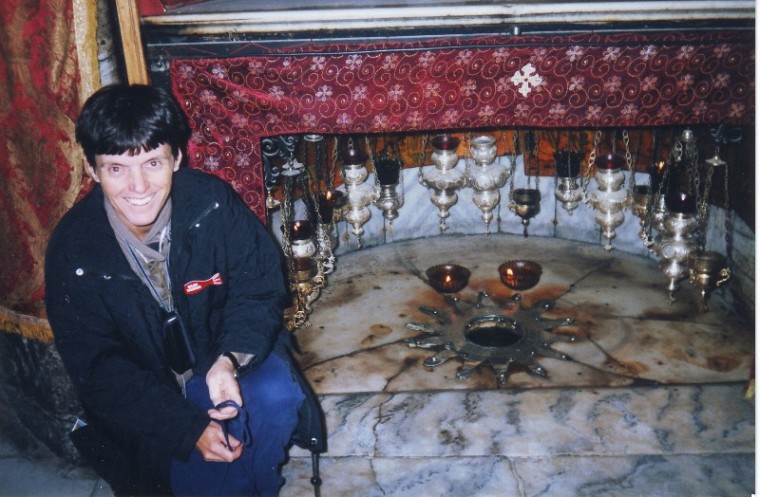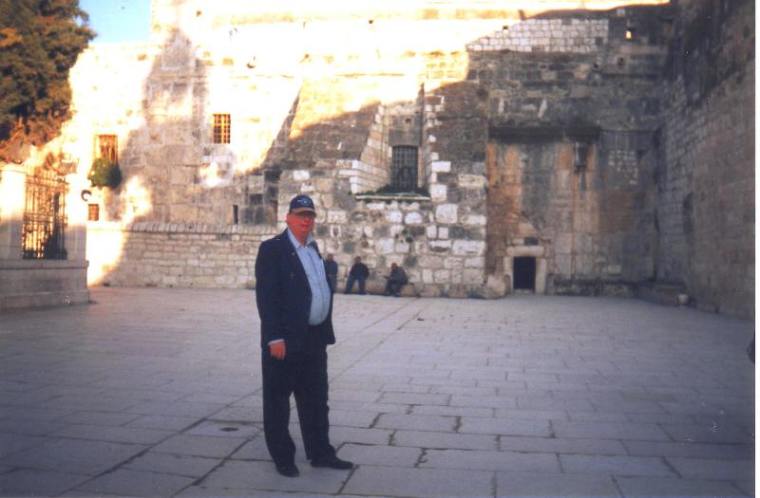
Christmas brings Australian Christians with a dichotomy. There are now laws associated with discrimination and racism. Therefore, does the media blast away at Christian belief because it is part of the main stream culture or is the media in effect, trying to detach Christianity from the main stream culture in that the society the media portrays is secular?
As soon as anything critical is said about other religions, their belief systems and their world views, their ethnic backgrounds, their historic conflicts, their political positions, their historic theocracy-militarised culture: somehow "a great sensitivity" is engaged by the media, politicians and business.
This same sensitivity is not offered to Christianity. This is at the essence of the disharmony many Christians feel in Australia: there is no level playing field in these areas. These are further issues for consideration:
The economy stupid
Western economic policies serve big business and they react to the global market and this determines whether they do business in your backyard which in turn provides employment and retains established standards of living.
In this sense, the economy requires a harmonious population without conflict and Western governments are caught between a rock and a hard-place in that religious or ethnic minorities need to be catered for where every knee is bended and head bowed through policies and positive media coverage to ensure they receive, what in effect, becomes what's perceived to be favoured status.
Although difficult to articulate, this is another of those arenas where many Christians perceive there is no level playing field. Moreover why the Government’s Religious Discrimination legislation is so difficult to formulate.

Two world views with daylight between them
A few weeks ago ISIS head Abu Bakr al-Baghdadi was killed and there was no greater illustration of a clash of civilisation was his philosophy and that of the West. Battles are won or lost on the philosophical, it is crucial we look at these two broad philosophical differences. The media plays a central role in this.
In Australia's constitution there is a separation of Church and State. At the opposite end of the spectrum is a theocracy, the State and the Religion have shared governance. Take two examples: a cartoon offensive to the religion, or the religion's book is burnt, the offence is like a dagger to the heart. People die in the protest. The passion involves the shared responsibility of State and Religion. In other words the State is required to punish perpetrators' acts against the Religion (even if it occurred in another country).
In Australia, or anywhere else in the western world for that matter, where there is a separation of Church and State, this is where the debarkation line "should be drawn". ‘So what’ - if someone draws an offensive cartoon of a religion?
But what we witness is that "reasonable criticism" of the theocracy is done with fear and trembling, as the threat of violent outcomes is real. Here's the rub in the West. Artists can present works such as 'Piss Christ' and fictional films about Jesus and his disciples in homosexual relationships, and it's all part of the great unwashed in free speech.
Everyone recognises there is daylight between two philosophies. This is not about right or wrong, rather illustrating the difference, a 'clash of civilisations".
Not just these two world's clash it's never that simple
China is different again. Belief systems that are entrenched are threatened by the message of Jesus Christ's message of freedom. Christianity it now touching many areas of China including economic inroads of the new economy with their committed hard work, honesty and ingenuities. Here Christianity is a minority religion. The difference is that there is no free robust press as there is in Australia. Indonesia, the largest Muslim nation in the world is different again, they have a working democracy. It is never simple.
In a world of differing philosophies, religions and world views, it is never as simple as it sounds. In global politics 'oil' seems to be a major 'calling card' and this affects the way the West handles foreign affairs. Moreover, the West ensures that those living within their borders who hold non-western philosophies, regardless of their religion or political world view, are guaranteed freedom of worship and political activism. These are the hallmarks of the West. The media is ready and willing to be robust.
'Soul Liberty' as opposed to 'Submission'
This 'clash of civilisations' is really important to get a handle on. The tenant of Christian belief is to relish criticism, illustrate its variety through scholarship and service to others. It witnesses people coming to faith in Jesus Christ through their own decision making processes as the Spirit of the Lord touches their souls. In theological speak, this is 'soul liberty'.
It is very different to the Islamic theological idea of 'submission'. One 'submits' to the will of Allah. The very essence of these two world views spells out why Christian belief can be so readily attacked willy-nilly by all and sundry as its 'soul liberty' spells freedom and freedom to be criticised and freedom to be laughed-at and freedom to have its scholarship critically challenged.
The theocratic world view, in this specific example of 'submission', demands a philosophy that the media, the politics and big business all equally 'submit' to the religion. 'Submission', is ultimately rejection, as no person can submit totally and unreservedly (Jesus said no man can fulfil the Law and we know this from our own experience of sin).
Moreover, 'submission' applies stringently to the media who dare not offer fearless analysis of the theocracy and its governance as the religion is indispensably party to it.

The reality in Australia
In Australia, the reality is that whether it is Buddhism, Hinduism, Islam, Cavenism, Drudism, Paganism or whatever, they get given a good run in the media. Australia is a fair-minded society which bases itself on the "power-of-the-pen" rather than that of the sword. 'Fair-minded' is a better concept that 'tolerance' as we have laws that define the limits of tolerance, such as road rules, neighbourhood by-laws, rules for business practise, and the like.
Christianity, the main stream of the Australian society, where church and state are separate, has no lawful preferences. Rather, as the main stream, it's given closer examination. There appears not to be a level playing field in reporting.
It is more than this though. It seems to apply at all levels of government where there is a soft approach to avoid any claim of discrimination or racism. It illustrates what is happening on the ground. But, to make an issue of such seemingly innocent changes immediately gets slammed by the media and the politicians as somehow being a racist and showing religious intolerance.
In reality, it's demanding that the way of every-day-life Australians have enjoyed for two hundred years, is being redirected to that of the philosophy of a minority whose essence is not freedom, but submission.
Christmas
When Christians remember the birth of Jesus whose ultimate death on the cross for our sin to offer freedom, is an ideal occasion to reflect on these issues. Christians in Australia can continue to serve their communities, continue to make inroads in people's lives for the cause of Christ. The reality is to reject nativity sets, Christmas pageants and school Christmas plays … anything at all to do with a Christian world view of Christmas is pillared in a variety of ways to diminish and belittle, in effect, our freedoms.
As Paul instructed Timothy to be ready with the Scriptures through which the Holy Spirit speaks into the hearts and minds of hearers: "All Scripture is given by inspiration of God, and is profitable for doctrine, for reproof, for correction, for instruction in righteousness." 2 Timothy chapter 3 verse 16.
This freedom we have in Australia it is not sacrosanct and could be lost. This Christmas stand up for our Christian values.
